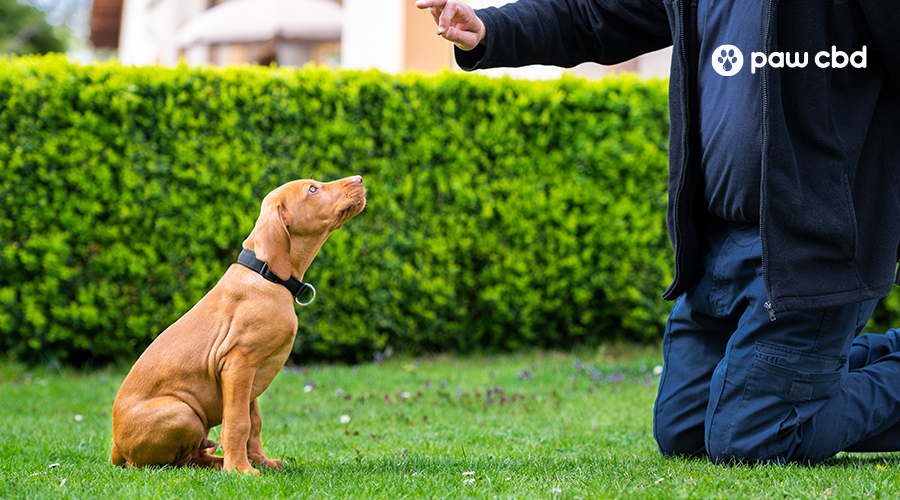
You should be aware that German Shepherds are easy to train. Just make sure you have a leash for your dog when you are taking it out. Also, take the time to teach your dog. You should keep your dog on a leash all the time, even when they are playing with toys. These are the steps to help you train your dog.
German Shepherd training starts with the understanding that German Shepherds respond positively to positive reinforcement. This means you should avoid using physical punishment. Instead, teach your dog to wait for a treat and then reward him for good behavior. Repeat this process often to get your dog to associate the reward with obeying the command. If he is doing the right behavior, a clicker will notify you and give you a treat. You can then teach him a trick and reward him with a treat.

If you want to train your German Shepherd to be a guard dog, you should choose a dog with excellent socialization and good sense of smell. He shouldn't approach strangers, but should wait for you to start the conversation. German Shepherds are naturally protective of their owners, so it won't be necessary to teach them how to interact with strangers. However, he may be a good watchdog or a guard dog, but don't make the mistake of thinking that he doesn't need training.
Also, you should train your German Shepherd to become a good guard dog. The leash should be worn and the dog pretending to be a threat. If your dog barks, be sure to praise it. This will build your dog's confidence as well as teach him how important it is to protect your yard. An aggressive German Shepherd can be born if you don’t train it.
If you want to train your German Shepherd to be a good guard dog, you should first start by training your dog not to jump. Your German Shepherd must learn to jump, so you have to be calm and relaxed. Being relaxed will allow your puppy to learn faster. Practice greeting your German Shepherd puppy. Greeting your dog with a low-key greeting will help him learn not to jump. Your commands will not be understood if your German Shepherd is scared of strangers.

You should choose a German Shepherd breed that is more suitable for the job if you are looking to train your German Shepherd as a service dog. Although the German Shepherd dog breed is not a service dog, it has many uses. This breed can be used to guide your pet when you walk him. These tips will make your German Shepherd an excellent service dog. If you want to get the best out of your dog, you should start working with an emotional support dog.
FAQ
How often should my dog be groomed?
Grooming your pet dog is very important. It will keep your dog's coat healthy and clean.
Dogs should be brushed twice per week. Brush your dog after every meal.
Brushing your dog’s fur will get rid dirt and hair. Brushing his teeth will make him appear healthier.
Ear infections can be prevented by brushing his ears.
Is it a good idea to spay/neuter your dog?
Yes! It is vital to spay/neuter your dog.
It helps reduce unwanted puppies and reduces the risk for certain diseases.
For example, breast cancer rates in female dogs are higher than in males.
Males are at greater risk for testicular cancer than their female counterparts.
Spaying and neutering your pet also prevents her from having babies.
Which is easier to train: cats or dogs?
Both. It all depends on the way you approach training them.
They will learn quicker if you reward them for following the instructions. However, if you ignore them and don't listen to them, they'll begin to ignore you.
There's no right or incorrect answer. It is up to you to find the best way for your dog or cat to learn.
What is pet assurance?
Pet Insurance provides financial protection when your pet is injured or becomes sick. It also covers routine vet care such as vaccinations and spaying/neutering.
It also pays for emergency care if your pet is injured or has an accident.
There are two types if pet insurance:
-
Catastrophic: This type of insurance pays medical expenses if your cat sustains serious injuries.
-
Non-catastrophic: This covers routine vet costs such as microchips and spays/neuters.
Some companies offer both non-catastrophic and catastrophic coverage. Others only offer one.
These costs will be covered by a monthly premium. The amount depends on how much you spend on your pet's care.
This insurance will cost you differently depending on the company that you choose. Make sure to shop around before you buy.
You may be eligible for discounts if more than one policy is purchased by the company.
You can transfer an existing pet plan from one company to another if you have it.
If you decide to not purchase any pet insurance you will be responsible for all costs.
But there are still ways that you can save money. Ask your veterinarian about discounts.
You may be disregarded by your pet if he sees you frequently.
Instead of spending money on a pet, you could adopt one from an animal shelter.
No matter which type of insurance you choose, it is important to read all the fine print.
It will inform you of the amount of your coverage. If you don't understand something, contact the insurer immediately.
Statistics
- It is estimated that the average cost per year of owning a cat or dog is about $1,000. (sspca.org)
- A 5% affiliation discount may apply to individuals who belong to select military, law enforcement, and service animal training organizations that have a relationship with Nationwide. (usnews.com)
- It's among a relatively few companies that provide policies with a full (100%) coverage option, meaning you are not responsible for any co-payment of bills. (money.com)
- In fact, according to ASPCA, first-year expenses can sum up to nearly $2,000. (petplay.com)
- * Monthly costs are for a 1-year-old female mixed-breed dog and a male domestic shorthair cat less than a year old, respectively, in excellent health residing in Texas, with a $500 annual deductible, $5,000 annual benefit limit, and 90% reimbursement rate. (usnews.com)
External Links
How To
How to train a pet cat
To properly train your cat, first you must understand his/her nature. Cats have complex brains. Cats are intelligent, emotional creatures. It is important to understand your cat's personality in order to ensure that he/she behaves well. You need to be able to manage your cat properly.
It is important to remember cats are independent beings. This means they don't like being told "no". So if you tell them "no," they may get angry at you. This is why you should never punish your cat for doing something wrong. It is important to show affection and love to your cat but you shouldn't treat them like a human being.
If your cat is having trouble, you can try to help them. Talk to your cat calmly. You should not yell at them/her. You can make him/her feel worse by shouting at you. Your cat cannot be forced to eat. Sometimes, your cat won't eat. You should offer treats to your child when this happens. But don't give too many treats because this could lead to overeating.
Keep your cat clean. Every day, wash your cat thoroughly. Use a wet towel to clean off dust and dirt. Fleas should be removed from your cat's skin. Flea bites can cause skin irritation and allergy. Flea bites can cause severe skin irritation so you need to use a flea shampoo.
Cats are social animals. They enjoy spending time with people. It is important that you spend quality time with your pet cat. Play with your cat, play with him/her and give him/her a bath. These activities will make your cat smile.
You should begin training your cat as soon as possible. Begin training your kitten at two weeks of age. Your kitten should be around three months old to start training him/her. This is the best age to start training your cat.
If you are teaching your cat tricks, it is important to explain each step clearly. You should first show your cat the chair before you teach it to sit. Next, show your cat the chair and reward them with treats. These steps should be repeated until your cat understands.
Remember that cats are intelligent. Cats can quickly figure out how they should perform tasks. They require patience and persistence. You can't expect your cat or dog to be able instantly to master a task. Give your cat lots of time to practice before giving in.
Don't forget cats are wild animals. Cats are playful and curious by nature. If you let your cat run free, he/she might accidentally knock objects away. To prevent accidents, place your cat in a secure area that won't cause injury to him/herself.